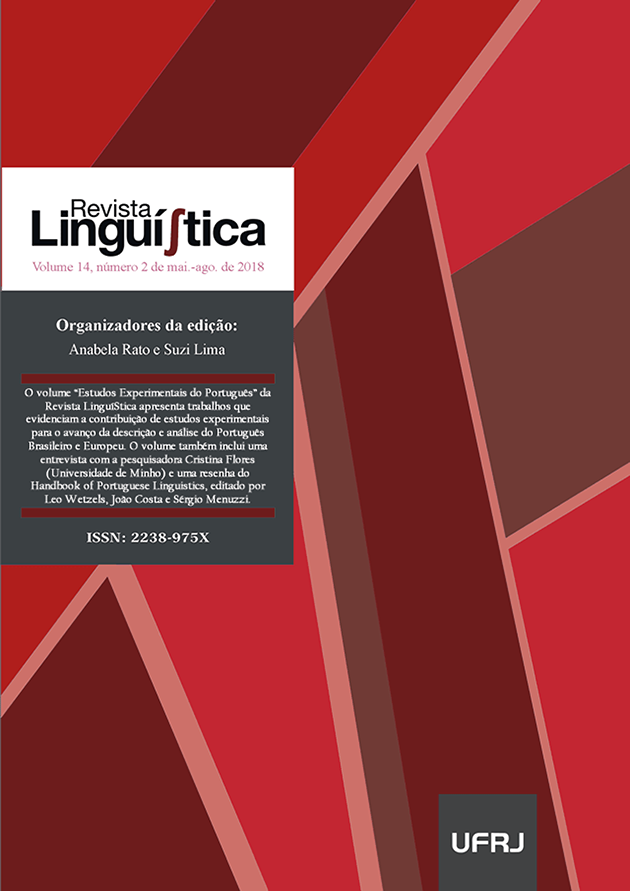How Chinese learners of L2 European Portuguese interpret null and overt pronouns in forward and backward anaphora
DOI:
https://doi.org/10.31513/linguistica.2018.v14n2a17653Keywords:
anaphora resolution, European Portuguese, Chinese, second language acquisition.Abstract
In a questionnaire study we investigate how native speakers of European Portuguese (EP) and Chinese, as well as Chinese learners of EP as second language (L2), interpret null and overt pronouns in forward and backward anaphora. Results show that EP native speakers exhibit different interpretative biases for null and overt pronominal subjects in both forward and backward anaphora. Chinese native speakers show similar interpretation in backward anaphora in their L1 but a subject preference with both null and overt pronouns in forward anaphora conditions. Chinese learners of L2 EP present an overall preference to interpret both pronouns as referring to the subject referent, although there is a developmental effect towards the target interpretation in overt pronoun backward anaphora conditions. Results confirm previous studies in L2 EP (Madeira et al., 2012; Lobo et al., 2017), but add the possibility that this pattern may be explained by L1 influence.
---
Original in English.
---
DOI: http://dx.doi.org/10.31513/linguistica.2018.v14n2a17653.
Downloads
Downloads
Published
Issue
Section
License
Authors who publish in the Revista Linguí∫tica agree with the following terms:
The authors maintain their rights, ceding to the journal the right to first publication of the article, simultaneously submitted to a Creative Commons license permitting the sharing with third-parties of published content as long as it mentions the author and its first publication in the Revista Linguí∫tica.
Authors may enter into additional agreements for the non-exclusive distribution of their published work (for example, posting in online institutional or non-profit repositories, or book chapters) so long as they acknowledge its initial publication in the Revista Linguí∫tica.

The journal Revista Linguí∫tica is published by the Post-Graduate program in Linguistics of UFRJ and employs a Creative Commons - Attribution-NonCommercial 4.0 International (CC-BY-NC).









